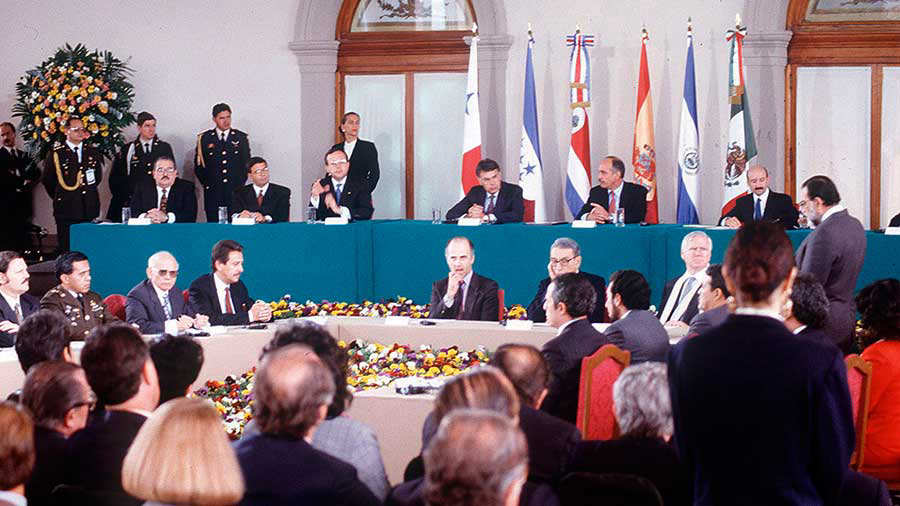
Nearly a hundred national and international personalities, including academics, politicians, historians, peace signers and former diplomats, signed an open letter to President Bukele.
worried about the statements of President Nayib Bukele in the hamlet of Mozote on December 17 last year, in which the historic event of January 16, 1992, which marked the beginning of peace in El Salvador after 12 years of war, 97 national personalities and internationals, political leaders, academics, historians and peace signatories signed an open letter addressed to the president.
“We refer specifically to his allusions to armed conflict and the Peace Accords as a farce.
he is concerned that in his capacity as President he will deal lightly with important issues. Certainly El Salvador still has formidable economic and social challenges. It was these problems, with deep historical roots, that led to a bloody armed conflict that claimed more than 75,000 lives and left orphaned and helpless and heartbroken children who deserve respect, ”says part of the letter.
SEE: President Bukele tarnished Peace Accords, according to analysts
The writing is also supported by former U.S. White House officials and ex-missionaries of the United Nations, MEPs, rectors and professors from local universities such as the UCA and international ones such as Yale, from the United States.
The letter states that without the Peace Accords the armed conflict would have continued to destroy lives and sabotage the Salvadoran economy. “The agreements were not useless or a farce,” they say.
They also argue that the progress that El Salvador had been since the pact was signed, as it began to build a democratic society that would allow the population to have a reliable electoral system that makes alternability possible. in power without political violence and “Armed Forces far removed from politics and subordinated to civilian power. An environment of freedom in which civil society can debate, without fear, the problems of the country.”
The signatories of the letter also highlight what has been established as a “free press that has contributed to
unmasking cases of corruption and shedding light on issues that need to be corrected, ”through free access to public information.
They also say that the agreements have a reliable country judicial system, the effective separation of the
powers of the State to allow respect for the institution, the creation of the Office of the Attorney General for the Defense of Human Rights, and that the work of the Truth Commission facilitated the first steps to end “impunity” in the country , a situation that is still unfinished but that the government can help materialize.
For the signatories, the war left the teaching that conflicts are resolved by roads. They admit that there are things to overcome such as poverty and fostering peace, but explain that the armed conflict left the teaching that must be resolved by other paths than “preaching hatred and division among brothers.” without Army intervention. “It is incumbent upon all citizens and particularly on you, President Bukele, as Head of State, to honor the memory of the victims of the armed conflict, strengthening the positive legacy of the Peace Accords,” they urge.
YOU MAY BE INTERESTED IN: “Deep ignorance” denotes President Bukele’s words